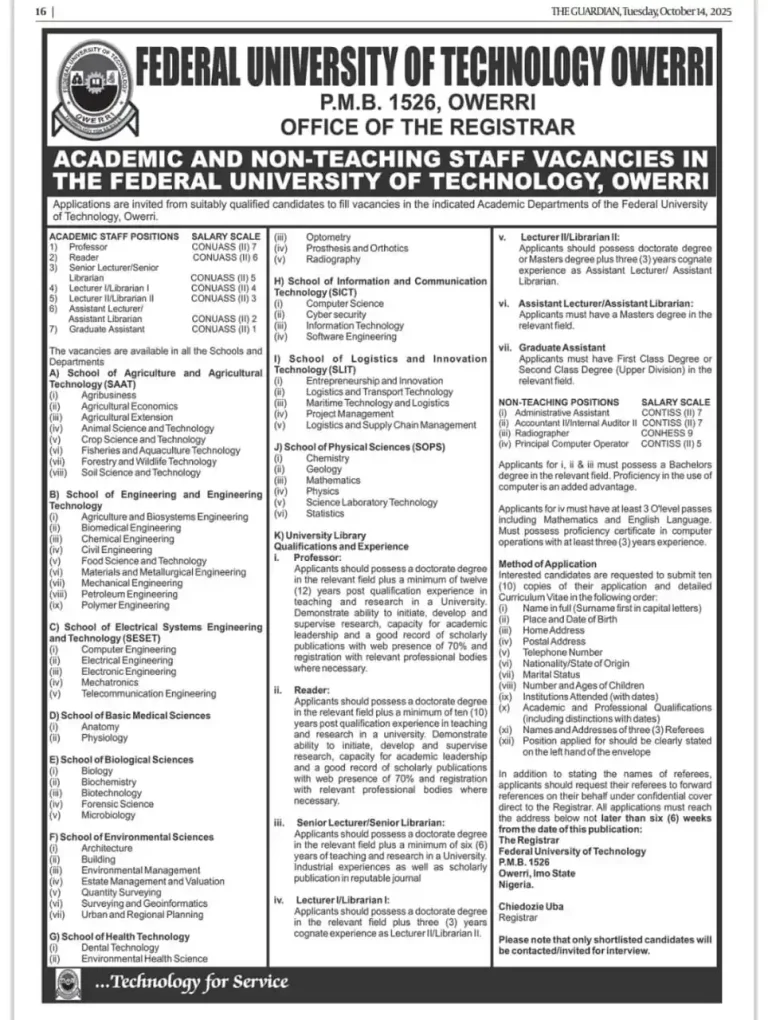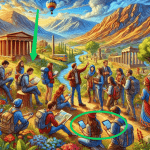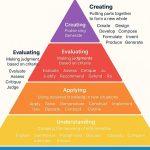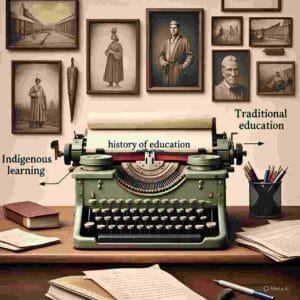
How Early Civilizations Shaped Global Education Systems
Education is not a modern invention. Long before the blackboard, curriculum, or classroom as we know them, ancient societies developed structured ways to teach values, knowledge, and survival skills. In this part, we look at how five key civilizations—Egypt, Greece, China, Islamic societies, and medieval Europe—shaped the course of global education.
Their philosophies, systems, and structures laid the foundation for many aspects of Nigeria’s formal and informal education today. We’ll also explore how these ancient models compare, how they influenced African learning traditions, and how they continue to echo in Nigeria’s current educational landscape.
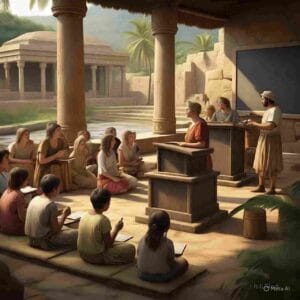
Education in Ancient Egypt: Birthplace of Literate Administration
One of the earliest and most structured education systems appeared in Ancient Egypt, as early as 3000 BCE. Education in Egypt was highly organized and intertwined with religion, government, and social hierarchy. It was mostly reserved for boys from elite families—particularly those being trained as scribes, priests, or administrators.
What They Taught
Subjects included:
- Hieroglyphic writing
- Arithmetic
- Astronomy
- Agricultural science
- Religious texts and ethics
Students memorized and copied texts repeatedly. Writing was considered sacred, a gift from Thoth, the god of wisdom.
Institutions and Methods
- Schools were often attached to temples.
- Children began their education around age five.
- The method was strictly rote learning and copying, with physical punishment as a discipline tool.
- The “House of Life” was a significant institution, serving as a scriptorium, library, and center for intellectual activity where scribes and priests studied and preserved religious and scientific knowledge.
Source – British Museum: Ancient Egyptian Writing
Legacy
Egypt’s educational methods set a precedent for formal schooling as a means to preserve and run a centralized society. The idea of training elite public servants through long-term schooling later influenced colonial education systems across Africa. This focus on practical, state-serving education resonates in the emphasis on vocational and technical training within Nigeria’s current educational policies.
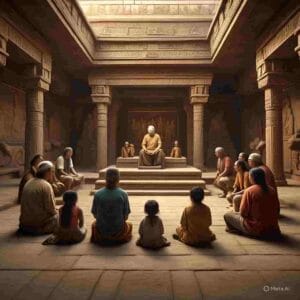
Education in Ancient Greece: The Foundation of Liberal Thinking
Fast forward to around 800 BCE, and we enter Ancient Greece, where education flourished in different forms depending on the city-state.
Two Models: Athens vs. Sparta
- Athens: Focused on intellectual growth, critical thinking, music, art, rhetoric, and philosophy. Education was informal for girls but formal for boys aged 7–18.
- Sparta: Built an education system around military training, discipline, and obedience. Reading and writing were secondary. The agoge, a rigorous state-sponsored training program, prepared boys from age seven for a life of military service.
Philosophical Contributions
Great Greek thinkers reshaped the way we see education:
- Socrates: Emphasized critical questioning—the Socratic method.
- Plato: Founded the Academy, which many see as the world’s first university. He viewed education as a tool for justice.
- Aristotle: Studied under Plato, and taught logic, ethics, and empiricism. He stressed observation and moral virtue.
Source – Stanford Encyclopedia of Philosophy: Plato’s Educational Philosophy
Method and Structure
- Boys attended gymnasiums or private schools.
- Teaching involved discussion, reasoning, and inquiry.
- Education was considered central to citizenship.
- The concept of the liberal arts—a broad, general education—originated here, focusing on preparing citizens for life, not just a specific trade.
Lasting Impact
Greek education emphasized individual development, civic responsibility, and the pursuit of truth. These principles continue to inform modern curricula globally—especially in humanities, philosophy, and civic education in Nigeria today. The modern Nigerian university system’s focus on critical thinking and debate can be traced back to this tradition.
Education in Ancient China: Morality and Meritocracy
By around 1050 BCE, China had developed one of the world’s most enduring educational traditions. Its system revolved around Confucian philosophy, which prioritized order, morality, family, and respect for authority.
Confucian Influence
Confucius (551–479 BCE) believed education made people virtuous and capable of leading society. He argued that all men—not just nobles—deserved to learn.
The Imperial Examination System
First formalized under the Han Dynasty (206 BCE–220 CE) and expanded during the Tang and Song dynasties, the Keju system was used to select civil servants based on knowledge and merit. This system was revolutionary because it created a social mobility path based on academic achievement rather than birthright.
Curriculum
- Confucian classics like the Analects, Doctrine of the Mean, and Book of Rites.
- Poetry and calligraphy.
- History and ethics.
Anchored Source – Asia for Educators: Confucius in Education](http://afe.easia.columbia.edu/special/china_1000bce_confucius.htm)
Educational Culture
- Emphasized memorization and moral behavior.
- Teachers held high social status.
- Learning was lifelong and disciplined.
Influence on Nigeria
China’s emphasis on virtue and state service echoes in parts of Nigeria where moral instruction and community service are woven into both secular and religious schooling. The highly competitive nature of entrance exams for federal schools and universities in Nigeria also reflects a meritocratic approach, similar to the Keju system, where academic success is a key to social and professional advancement.
Islamic Education: Golden Age Learning and African Integration
From the 7th century onward, Islamic education spread rapidly across the Middle East, North Africa, and parts of Sub-Saharan Africa, including Northern Nigeria.
The Qur’an and Literacy
Learning to read the Qur’an became central to Islamic societies. Education was both spiritual and practical, equipping learners with skills for both religious and worldly life.
Institutions
- Maktabs: Elementary schools that taught reading, Arabic writing, and basic arithmetic.
- Madrasas: Institutions of higher learning for theology, law, mathematics, and science.
- Cities like Baghdad, Cairo, Fez, and Timbuktu became centers of scholarship. Books were written in Arabic and Persian, and scholars from all over Africa traveled to study there. The University of Al‑Karaouine in Fez, founded in 859 CE, is one of the oldest continually operating educational institutions in the world.
Source – UNESCO: Islamic Contributions to Education
Influence in Nigeria
Northern Nigeria adopted Islamic education through trade and migration. Cities like Kano, Sokoto, and Zaria hosted Qur’anic schools. Islamic learning preserved literacy and civic values before colonial Western systems. Even today, Almajiri schools and Islamic universities in Nigeria are rooted in this tradition, with a modern push to integrate these institutions into the formal national curriculum.
Medieval Europe: Christian Learning and the Rise of Universities
From the 5th to 15th century, Europe’s education was dominated by the Catholic Church. After the fall of the Roman Empire, monks and clergy were the primary educators.
The Church and Education
- Monasteries were the first schools, focused on Latin literacy, Bible studies, and theology.
- Cathedral schools served urban elites and trained future clergy.
Curriculum
Based on the Seven Liberal Arts:
- Trivium: Grammar, rhetoric, logic
- Quadrivium: Arithmetic, music, geometry, astronomy
Universities began to emerge in the 12th century:
- Bologna (1088) for law.
- Paris (1150) for theology.
- Oxford (1167) for mixed disciplines.
Source – Oxford University: History of the University
Legacy
These institutions influenced how schools and degrees are structured today. Nigeria’s university system (e.g., University of Ibadan, Ahmadu Bello University) reflects this model: formal exams, syllabi, faculties, and secular‑religious tension. The distinct division of academic disciplines into faculties and departments, common in all Nigerian universities, is a direct inheritance of this medieval European structure.
Shared Philosophical Foundations
Across these civilizations, education shared a few key principles:
| Thinker | Region | Key Idea |
|---|---|---|
| Confucius | China | Education builds ethical character |
| Plato | Greece | Knowledge = justice in society |
| Aristotle | Greece | Empirical learning and moral virtue |
| Al‑Ghazali & Avicenna | Islamic world | Integrate reason with spiritual development |
| Thomas Aquinas | Europe | Harmony between theology and logic |
These ideas show up in:
- Nigeria’s religion and moral instruction
- University course combinations (e.g., philosophy, law, ethics)
- The mix of religious and secular schools across the country
Source: Internet Encyclopedia of Philosophy: Key Figures in Education
How Ancient Systems Influenced Nigeria
Nigeria’s education didn’t evolve in a vacuum. These global civilizations left footprints through:
- Islamic trade routes and teachings in the North, leading to a vibrant tradition of Qur’anic schools and scholarship.
- Christian missionary schooling modeled after medieval European frameworks, bringing with it a structured curriculum and the institutional format of schools.
- British colonial systems, directly tied to Greco‑Roman and European liberal arts education, which emphasized a curriculum designed to create a civil service class.
- Moral codes and learning methods that reflect Confucian and Socratic values, seen in the emphasis on civic responsibility and ethical behavior in national curricula.
Many modern Nigerian schools—even informal Islamiyya or home‑taught settings—reflect blended philosophies rooted in centuries‑old global traditions.
Conclusion: Understanding the Roots to Shape the Future
From temple scribes to Greek philosophers, Confucian scholars to madrasas, education has always been about more than reading and writing. It was—and still is—a tool for shaping the soul, building nations, and preserving culture.
As we move to next, we’ll narrow our focus to Colonial Nigeria (1842–1960). This period will explore how the British, through missionaries and direct governance, reshaped Nigeria’s educational system—sometimes preserving traditional forms, other times replacing them.
Knowing how earlier societies approached education helps us better understand why Nigeria’s own system became so complex—and why its future still leans on the past.



